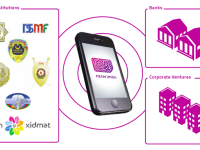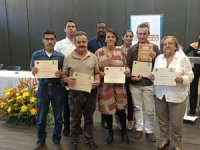The Twinning Programme is part of the Gauteng Department of Education’s wider strategic framework and its “Re-organisation of Schools” strategy. The objectives of the Twinning Programme are to improve learner outcomes and foster social cohesion in nurturing holistic learner development by creating an environment for cultural exchange through sharing expertise and resources across suburban and township schools.
Innovation Tag: Social Innovation
In 2015, a constitutional reform on transparency allowed the INAI to propose a specific set of actions to adopt and institutionalize open government principles in Mexico. Thus, it designed a comprehensive strategy that mainly consisted of the implementation of provisions, methodologies and public policies to guide and articulate the design, implementation, and operation of open government in public institutions, the three levels of government and the three branches of government nationwide.
My Open Library is a customer service delivery project which extends public library opening hours from 8.00 am to 10.00 pm, seven days per week. New technology allows users to access the buildings and services at times that suits them best.
The National Secretariat of Technical Planning in Paraguay created the first National Volunteer Program Arovia, a public volunteer platform that promotes increased access to information on public services and opportunities for the implementation of grassroots projects that strengthens citizen participation and local governments structures. Arovia volunteers are young professionals who bring innovative social interventions to territories prioritized within the national poverty reduction strategy.
Case Study
National digital Identity and legally binding e-signatures based on Mobile-ID technology branded…

Asan Imza is the world’s fastest growing national digital identity in the form of Mobile-ID, which is secure, trusted and issued by the government of Azerbaijan. Based on PKI (a public key infrastructure) it is an irreplaceable tool empowering across all sectors, from public to private, including financial institutions and Mobile Network Operators, allowing to digitally verify your identity and create signatures equal to handwritten counterparts, regulated by law.
The Michigan Economic Development Corp (MEDC) teamed up with private partner Patronicity to launch a first of its kind crowd-granting program to help create vibrant communities throughout Michigan. The crowdgranting model streamlines the granting process, increases community engagement and results in more sustainable projects that better serve and impact the communities they are within.
Of the 170 completed projects, 165 of them exceeded their crowdfunding goal at a ratio of total private…
The Michigan Economic Development Corp (MEDC) teamed up with private partner Patronicity to launch a first of its kind crowd-granting program to help create vibrant communities throughout Michigan. The program revolutionizes the granting process, in part, by making the community the final review committee. If the project garners enough community support through crowdfunding, it will receive a matching grant.
With crowdfunding success rates across the industry at around 5-10% for projects…
Medicinal products, due to their nature, have potential for side effects along with therapeutic effects even when they are used correctly. Since 19 Dec 2014, Ministry of Food and Drug Safety (MFDS) and Korea Institute of Drug Safety & Risk Management (KIDS) have instituted Adverse Drug Reaction(ADR) Relief System to help people inflicted by such side effects to receive aid without legal action.
The reason for the development and launch of our e-solutions was to facilitate the collection of initiatives and proposals to eliminate administrative burdens and review their implementation in one place.
Our innovation provides users with an on-line one-stop-shop solution, where they receive all information about activities in eliminating administrative burdens and preparing better legislation, and enables systematic collection, resolution and monitoring of implementation of proposals.
In a context where the channels between institutions and citizens have been broken by corruption, Día Blanco [White Day] is developed to promote bonds of trust and legitimacy among communities. In the last 3 years, more than 35,000 citizens have been mobilized by this innovative experience, which helps social organizations to inform their communities about their management and impact on local development through social accountability exercises.


